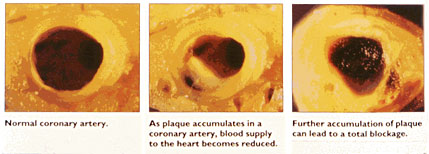Wine & Health Summary of Oenotherapy
 (Right: Hippocrates)
(Right: Hippocrates)
Man has been consuming wine for over 10,000 years and using it as a medicine for over 5,000 years. It is man's oldest medicine. Hippocrates, the most famous of the ancient physicians had this to say about wine; 'wine is fit for man in a wonderful way provided that it is taken with good sense by the sick as well as the healthy', and Paracelcus, the father of modern pharmacology, said 'whether wine is a medicine, nourishment or poison is a matter of dosage'.
Australia is unique amongst wine producing countries in that 60% of the fruit from any vintage is processed by wine companies established by Australia's over 160 wine doctors such as household wine company names Lindeman, Penfold, Hardy, Angove, Houghton, Minchinbury and Stanley.
Wine was used as early as the First fleet as a medicine to keep the convicts alive during the 6 to 8 month voyage out to Australia and the early wine doctors established their vineyards to make wine as a medicine for their patients.
It has been well documented that consuming wine in moderation can reduce death from all causes by up to 50% mainly due to reducing our society's biggest killer, vascular disease, by up to 50% and cancer by up to 24%. It is also good for relieving society's other big disease group the stress related diseases.
Before discussing the benefits of drinking wine, we should define moderation and also discuss those who should not consume wine. Moderation is a maximum of 4 standard drinks per day for a male and 2 for a female, where a standard drink contains 10gms of alcohol ie. 120-150 mls of wine, depending on the percentage of alcohol contained in the wine. Women get half the amount of men because they have only half the amount of alcohol dehydrogenase, the enzyme which metabolises or breaks down alcohol.
People should avoid drinking alcohol if they react badly to it or have any significant stomach disease such as gastritis or ulcers, liver disease such as hepatitis or cirrhosis, heart disease such as myocarditis or myocardopathy or nerve disease such as peripheral neuropathy or encephalopathy. If in doubt, always check with your doctor.
 (Right: The accumulation of plaque in a coronary artery)
(Right: The accumulation of plaque in a coronary artery)
Blood vessels become blocked leading to heart attacks and strokes, when too much fat in the form of low-density lipoprotein or 'bad cholesterol' becomes deposited within the blood vessel wall. Eventually this fat, called atheromatous plaque, swells up and forms an obstruction to blood flow. By altering blood flow, this fatty plaque can also cause the blood to clot. Or, the fat can swell up to the point where it bursts through the internal lining of the artery wall, causing a clot to form to breach the tear in the wall of the artery. However it occurs, when a blood vessel becomes blocked, it causes death to the tissue the blood supplies, resulting in a heart attack or stroke, for example.
Wine acts in five ways to help prevent this happening. First, it lowers low-density lipoprotein, the 'bad cholesterol', so there are less fatty deposits available to form atheromatous plaque. Second, it raises the high-density lipoprotein or 'good cholesterol' from the artery wall by taking it back to the liver to be metabolised and reused. Third, wine has very strong antioxidants. They are five times stronger than vitamin E, the usual benchmark antioxidant. These strong antioxidants inhibit 'bad cholesterol' from being incorporated into the blood vessel wall, thus preventing the formation of atheromatous plaque. Fourth wine acts as an anti-coagulant, which stops the blood from forming clots. Fifth, because wine is able to relax you, it also reduces stress.
Latest research has also shown other vascular disease benefits from moderate wine consumption. The rate of deep vein thrombosis, or clotting in the leg, can be reduced by up to fifty percent. It can reduce osteoporosis and dementia and the rate of macular degeneration, an incurable form of blindness, can be reduced by up to twenty percent. Half of all renal failure is caused by vascular disease that can be reduced and prevented by wine therapy.
Medicine should now be switching its emphasis from treating a disease, such as vascular disease, with expensive bypass surgery or angioplasty to preventing the disease with sensible lifestyle changes such as consuming wine in moderation, not smoking, watching your B.P., sugar, cholesterol, weight and exercising. Realistically, as a doctor, it is hard to get people to adhere to these lifestyle changes all their life though, except for the first one!
The body is continuously producing waste products from its many complex biochemical pathways. These waste products include free radicals, which become free agents causing biochemical havoc within the body leading to such things as degeneration of the body, aging and cancer. The main antioxidants in wine, resveratrol, quercitin and epicatechin, have been shown to reduce cancers by up to 24% by protecting the DNA molecules (the building blocks of chromosomes or genetic material in the nucleus of a cell) from being damaged by these harmful free radicals. Abuse of alcohol though can lead to an increase in the cancer rate, especially in the digestive system.
Exciting new research into resveratrol is showing that it has other benefits besides its antioxidant role in reducing vascular disease and cancer etc. Scientists at the University of Milan under Alberto Bertelli have shown that resveratrol stimulates M.A.P. kinase (mitogen- activated-protein); which is a neural enzyme that stimulates nerve cells and helps them to regenerate, by up to sevenfold. Researchers found that the resveratrol made the human nerve cells grow extensions, which enabled them to connect to neighbouring nerve cells. This helps explain why wine drinkers have less of the neurodegenerative diseases such as Alzheimer's disease (commonest cause of dementia) and Parkinson's disease. In neurodegenerative diseases these connections break down. "By daily reinforcing these contacts we can prevent neurodegeneration", Dr. Bertelli has stated. Consuming wine in moderation would also mean that the vascular tree within the brain would be less diseased, hence able to supply the brain's nerves with more blood containing essential oxygen and glucose. This is another mechanism by which wine helps the brain to function better. So wine in moderation could be referred to as "brain food" or "brain friendly" as it prevents strokes and nerve cell degeneration, which is in marked contrast to what was previously thought about the effects of any form of alcohol on the brain. Abuse of alcohol severely damages nerve cells leading to Wernicke's encephalopathy, Korsakoff's syndrome, peripheral neuropathy and other forms of nerve degeneration.
Remember, wine is to be enjoyed with food and not taken too seriously. People feel that only red wine has health benefits whereas the truth is that is does not really matter whether it is red or white wine - they both work. What does matter is that the correct wine is married to the food. It should be part of a healthy lifestyle and the ultimate health drink - the thinking person's health drink.
What I am preaching is preventive medicine (with wine) that tries to give people the maximum quality and quantity of life; in other words I will try to help you die young as late as possible.
"Happiness is the sole pursuit of the winemaker". Anon.
In summary, if there is no contraindication, consuming wine in moderation daily is the single most important preventative health measure one can do, other than giving up smoking.
Dr Philip Norrie is a member of the Vinopolis Advisory Board and a family physician in Sydney as well as a wine and medical historian. He founded Pendarves Estate, a boutique vineyard in the lower Hunter Valley to the north of Sydney.
Dr Philip NORRIE
MBBS,MA,MSc,MSocSc[Hons],PhD,MD, currently doing M.Phil































